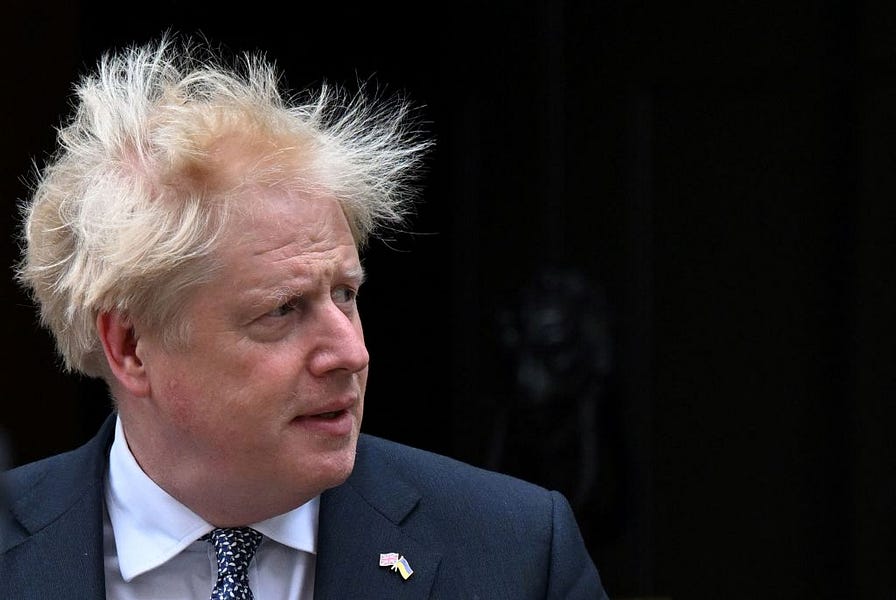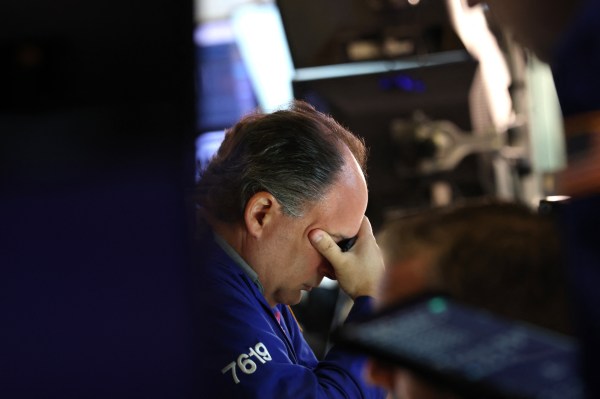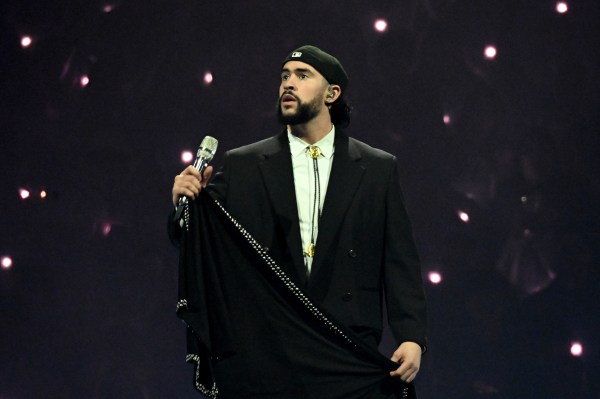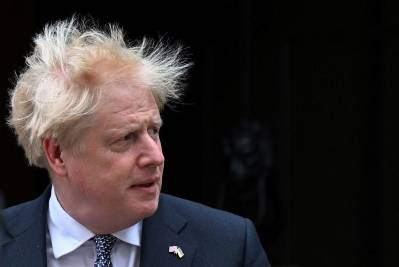Boris Johnson’s luck has finally run out. The prime minister agreed to step down as Conservative Party leader Thursday and—once a successor is chosen—as prime minister, following a calamitous few days in British politics.
Like a Frank Abagnale in coattails, Johnson had managed to outrun almost everyone. David Cameron, his school friend and former PM, called him “the greased piglet” because he could escape from every crisis seemingly unscathed. And so it seemed until, in 24 hours, more than 50 members of Johnson’s government resigned en masse. By Thursday morning, the message was clear: Time’s up.
The case for Boris Johnson as leader of the party and country always rested on shaky foundations. His supporters knew he was a gambler. But Johnson had an uncanny way of defusing everything with a cock-sure smile and a jig of his tousled hair. When everything was a joke, anything seemed possible.
There have been so many investigations, so many resignations and apologies and lies over the past 18 months, it can be hard to distill it all into a coherent narrative. But the case against Johnson emerged eventually, and in two parts.
The first was ethical. A story of who paid for a refurbishment of the PM’s home ended up dragging senior civil servants into numerous investigations about Johnson’s personal accounting. Johnson tried to block the dismissal of an MP found guilty of breaching lobbying rules. He appointed another accused of sexual misconduct, which he probably knew about.
Then came “Partygate.” A police investigation concluded that at least eight “gatherings” at Downing Street broke the government’s own COVID regulations and, after repeatedly claiming he knew nothing about them, Johnson was issued a fine for his involvement. A civil service report concluded that the affair “represent[ed] a serious failure to observe not just the high standards expected of those working at the heart of Government” but “also of the standards expected of the entire British population at the time.”
Even to those pursuing it, Partygate seemed an errant farce. In a sense, it was. But the affair managed to unite both the COVID-conscious and those critical of lockdowns in shared outrage at the government’s hypocrisy. It gave the impression of an administration which couldn’t care less.
The second case against Johnson, however, might be more fundamental in the long run. From a strong start promising to “Get Brexit Done” and “level up” the country’s most deprived regions, the administration lost control of its own story. Dominic Cummings, his former aide, likened Johnson to a “trolley” careering down an alleyway, with “no plan or grip, just crises and media entertainment.”
At the heart of government, Johnson’s critics claimed, lay an ideological void. Johnson was supposed to be the bulldog who would break the Brexit deadlock, stick two fingers to liberal “wokery” and revive the British economy after years of low productivity.
To be fair, COVID would have tested even a visionary. The 70 billion pounds spent on propping up employment during the pandemic was praised at first. But subsequent tax hikes, especially on national insurance, proved unpopular with the economic liberals in his party.
Johnson’s commitment to “net zero” —the legal obligation to achieve national carbon neutrality by 2050—was also controversial, especially as the energy crisis following Russia’s invasion of Ukraine intensified.
Nor has Brexit gone away: Business-owners, especially in Northern Ireland, are annoyed at higher costs and bureaucracy. Johnson’s reneging on terms of the Protocol to ensure smooth trade between Northern Ireland and the Republic of Ireland—which is an EU member—was seen to undermine British diplomatic integrity.
Dominic Sandbrook, British historian and journalist, wrote this week that Johnson was always best playing Ronald Reagan: the showman who was aware of his own intellectual limitations and willing to surround himself with the best and the brightest to compensate. Johnson had cut his teeth in Britain’s closest thing to a state governorship—the Mayoralty of London—parading his Union Jacks and ambitious infrastructure projects with a can-do cosmopolitanism (Londoners still use “Boris bikes” to get around the city). And his appointment of Cummings—architect of the successful Brexit campaign—as his chief adviser suggested that this esoteric alliance between populism and technocracy would continue.
But resignations abounded as the pandemic exposed Johnson’s vacillation and lack of attention to detail. Cummings resigned in November 2020, exposing thereafter, in grisly detail via Substack, the lack of early preparedness for the crisis and just about every other skeleton in Johnson’s closet.
So what of the succession? The next party leader faces the unenviable task not only of rebuilding the trust of the public in the party’s ethical integrity, but of constructing a credible policy program out of Johnson’s patchwork legacy.
If history is anything to go by, the Conservatives are already fighting an uphill battle. The next general election will probably take place in 2024. But the British public has never authorized a fifth consecutive term of government for any modern political party.
The contenders for the job will do their best to distance themselves from the administration they have until now defended. “It’s not fair on ministerial colleagues to go out every morning defending lines that don’t stand up and don’t hold up,” said Johnson’s health minister, Sajid Javid, in his resignation speech to the House of Commons Wednesday. “It’s not fair on Conservative members and voters, who rightly expect better standards from the party they supported.”
The future of British Conservatism is uncertain and the party is rightly nervous. Nor is there a clear successor. Part of the problem is that the alliance between low taxes, a tougher border policy, and targeted spending on things like health care was actually quite popular. It’s the sort of combo that engaged voters in Brexit and which Johnson was supposed to develop with his historic majority into a more coherent long-term program—let’s call it “Johnsonism.”
Few contenders are able—and certainly not willing—to continue Johnsonism after Johnson. Javid’s colleague, Rishi Sunak, who resigned as finance minister on the same day, was once widely tipped as a successor because of his fiscal discipline and clean image. But the political ground is shifting and Conservative orthodoxies—even those as tried-and-tested as free market Thatcherism—will need to be complemented by some creative thinking.
The most obvious threat comes from the left. The British democratic system favors majority governments and disfavors coalition. This makes an alliance between the main left-wing parties—Labour, the Liberal Democrats, the Greens and the Scottish National Party—difficult, even if collectively they take more votes than the Conservatives.
Recent results, however, are telling. In June the Conservatives lost their fragile mandate over the Yorkshire seat of Wakefield, one of the crucial “Red Wall” Labour-voting constituencies that Johnson had managed to woo in 2019. The Liberal Democrats won two further by-elections in middle-class suburban seats. And in a slew of local elections in May, the Tories were thrashed. In all cases voters appeared to vote tactically, forsaking party preference to choose the candidate most likely to beat the Conservatives in each seat.
While the “anti-Tory” coalition is a fragile one, voters are clearly ready for change. The truth is that the defenestration of Johnson does make a Labour government more likely. That’s because time is running out for whoever succeeds him to craft a new policy program. Meanwhile, voters are better at knowing what they don’t want.
Government will continue beneath the calamity. U.S. President Joe Biden told media Thursday that the “special relationship” between the United Kingdom and the U.S. remained “strong and enduring.” With the continued war in Ukraine, an energy crisis in Europe, and a gathering economic storm which could spell imminent recession, Johnson will probably stagger on for at least a few weeks.
But the applause he received from the throng gathered at 10 Downing Street Thursday was not, as he seemed to believe, congratulatory. It was applause of gratitude and of relief, the sort of cynical, ironic applause we Brits are good at. The Conservative Party sees itself as the natural party of government. But with Johnson (almost) gone, it’s got a lot of soul-searching to do.






Please note that we at The Dispatch hold ourselves, our work, and our commenters to a higher standard than other places on the internet. We welcome comments that foster genuine debate or discussion—including comments critical of us or our work—but responses that include ad hominem attacks on fellow Dispatch members or are intended to stoke fear and anger may be moderated.
With your membership, you only have the ability to comment on The Morning Dispatch articles. Consider upgrading to join the conversation everywhere.